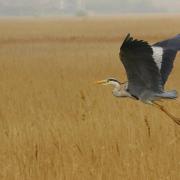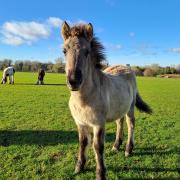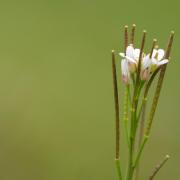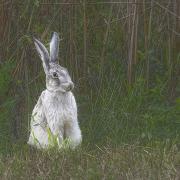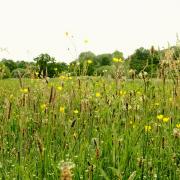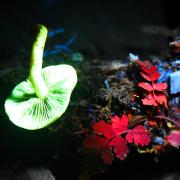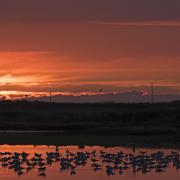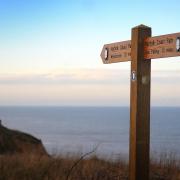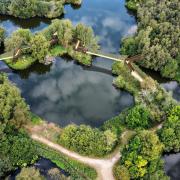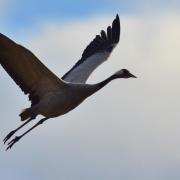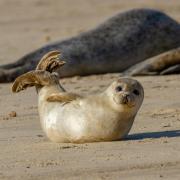A relentless tide of sick animals and birds in need of care and rehabilitation, the team at the RSPCA’s East Winch Wildlife centre has experienced a year like no other

The corridor is filled with a seemingly endless queue of newspaper-lined boxes and crates of all shapes and sizes; every door you open reveals a room packed with more of the same.
Inside, hidden away and curled tightly into little balls are hedgehogs; dozens of them. All are at different stages of treatment and rehabilitation; all hoping for the same thing, for a successful release back into Norfolk’s wild.
This year alone, the RSPCA’s East Winch Wildlife centre has looked after more than 1,000 of these little creatures – the most it has seen in almost 20 years, and they keep on coming. Hedgehogs aren’t the only things which seem to be increasingly reliant on the devoted team of staff and volunteers.
They are part of a much bigger trend happening across the county – by mid November the centre had already seen some 4,376 creatures, in comparison to 4,282 for all of last year.

The RSPCA centre near King’s Lynn is home to an ever-changing population of creatures. Open one door and inquisitive swans swing their necks round to inspect you; some are collected together in strange family groups with random rescued ducks.
In the corner of an examination room, two tiny pipistrelle bats are seeking solace in a crumpled towel inside a special tent and there are the young sparrowhawk and kestrel, peering out nervously from their cages set among the rows of hedgehogs, all going through their first phases of treatment.
But it is East Winch’s work with the coastline’s seal population that it is best known for – and it is the little common seal pups, many of which are in a terrible state, that are most in need of the specialist veterinary care they provide. Small and weak, their huge eyes unusually dulled, their breathing laboured – this, says centre manager Alison Charles, is typical of the seals being rescued this year.
“It has been particularly bad for common seals and we have already had 124, the highest number in 15 years. The pups coming in are incredibly poorly and sadly a lot have died with us – around 60% – where in the past we would have managed to treat, rehabilitate and release them. It has been an incredibly tough six months, especially for our staff as they put in so much hard work caring for them, physically and emotionally,” she says.

“We have to find the answer as it is getting worse year on year and we are undertaking studies to try and work out what is going on. They are getting smaller and smaller, and we think, more and more immune suppressed. It is not just here, it is all along the east coast. Whatever is happening to them could impact on other species and the wider environmental picture.”
The most famous resident at East Winch is Mrs Frisbee the seal who was rescued from Horsey beach with a plastic Frisbee ring stuck around her neck in September. By the time she was captured and brought to the centre for lifesaving treatment, she was badly dehydrated and malnourished with a terrible wound around her neck where the Frisbee cut into her neck as she grew. Three months on, with the Frisbee removed, her neck wound might still look grisly, but she is in remarkably good health as she swims and dives in one of the centre’s outdoor pools.
“She’s doing well and getting fitter, but we need to be sure she can extend her neck properly before she can be released so that she can fish and survive in the ocean. Only time will tell at the moment,” says Alison.
“While finding seals with Frisbees round their necks is unusual, sadly the impact of other man made pollution, in particular plastic, can be seen all too frequently in the animals and birds we get in. We are monitoring another seal at the moment on the beach with something metal around its neck and another with a bikini wrapped around it. It sounds comical, but the impact could be fatal as we have no idea whether the material is going to come apart or if the elastic will snap before it is too late.”

She says the way the recent series of Blue Planet II illustrated the devastating impact of plastic in our oceans finally brought it into the mainstream.
“I was so happy when I saw them addressing it in such a powerful way and thanks to its huge reach, it really got everyone talking, it was all over the news. We do wonder whether this common seal issue is something to do with plastics in the sea, but that is all we can do at the moment, wonder. We see the impact ourselves every day just here in Norfolk, the harm it does to wildlife, whether that is litter being discarded by people, plastic offshore or fishermen leaving old hooks and lines in the water. These things were built to be durable and that is the problem – once they are in or around an animal, they are not going anywhere.”
Just then, a volunteer from the Friends of Horsey Seals rings the centre to report a seriously ill male with a neck injury.
“People are much more aware of wildlife and East Anglia is really well covered with volunteers and wildlife rangers who know who to call and what to do.”

However, she says, it is essential the public should not approach a seal – even if it looks in distress.
“No matter how cute they look, or how sick and vulnerable they appear, do not attempt to go near. They are wild animals and will bite if they feel threatened or are under stress, and it is not a nice bite, it is incredibly painful and can cause really serious infection – as we all know here. We even see people getting up close to take selfies with seals, please don’t. Report it to the RSPCA or an onsite warden.”
The hedgehogs, like the seals, have also been admitted in unprecedented numbers this year, brought in after being found out during the day, weak and wobbly and too small and starving to hibernate.
“They get adult dog food and gravy – we mix up two washing-up bowls just for the morning feed and go through so much, we buy the dog food by the tonne not the tin. We warm them up, feed them up and get them used to being back outside. We can only release them during a four-day window during which time the temperature must be above four degrees as it gives them time to find food and a place to settle in before the ground freezes. If we don’t have that weather window, they don’t get released.”

Ultimately, the centre’s aim is for the wildlife to be released as close to its original habitat as possible.
“The process for each creature which comes here is quite similar; everything starts in a small box or cage before finally venturing outside to larger runs or, for the birds, the flight aviary, before hopefully they are released back into the wild. We try and leave them alone as much as possible. We don’t talk to them and only handle them when absolutely necessary as we don’t want them to get too domesticated. We all want them to have the best chance of surviving and thriving back in the wild.”
If you have any old newspapers, towels, sheets, flannels or tea towels, please donate them to the team at East Winch RSPCA as there is always a huge demand on these resources to keep the creatures warm and to line cages and runs. See www.rspca.org.uk/local/east-winch-wildlife-centre. If you are out and spot a seal adult or pup which looks distressed, either find a warden or call the RSPCA 24hr emergency line: 0300 1234 999




